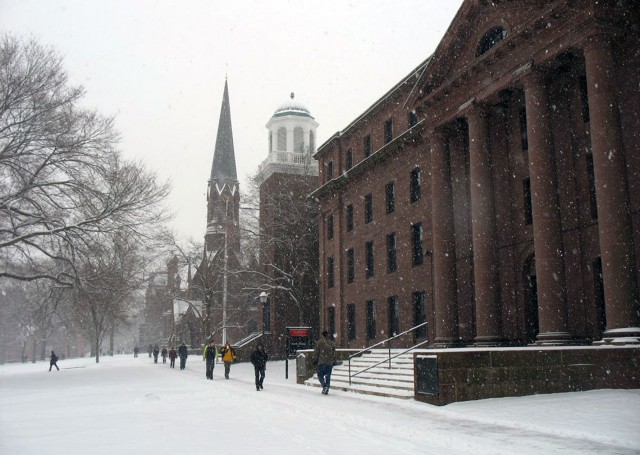The debate about whether education should be utilitarian and accessible to all has been part of the national conversation since the early days of the country. Thomas Jefferson argued that members of the underclass, who seemed the least likely to succeed in university, should be given the opportunity to raise themselves up through education. "Because otherwise wealthy people will protect their wealth and make it harder and harder for anyone else to enter the higher echelons of any society," Roth said, summarizing Jefferson's argument.
A similar debate between Booker T. Washington and W.E.B. Du Bois occurred following the Civil War, when both men sought the best path to improve the economic and social positions of newly freed African-Americans who had lived much of their lives in slavery. Washington favored training people in practical trades, while Du Bois insisted African-Americans deserved the kind of liberal arts education white academics received.
"What Du Bois argued is that we need to have practical skills, but we don't need to track people into professions or activities that limit their horizons in advance of seeing what they can do and what they can learn," Roth said. He worries that the current national preoccupation with gaining specific skills will limit students before they have time to explore the many possibilities for their lives.
"I do think it's our responsibility as leaders of liberal arts institutions and colleges to make sure our students are equipped to compete in the marketplace when they leave our campuses," Roth said. "But you don't want to prepare for the worst job you'll ever have."
He thinks college should prepare students for their first job -- likely their worst job -- but also ready them for a lifetime of meaningful work that contributes to making the world a better place. Emphasizing an education that provides a basis for critical thinking and analysis throughout life makes learning a specific programming language, which will likely become outmoded in a few years, seem less valuable.
Roth is well aware that his altruistic view of a college education, which helps form an engaged and active citizenry, is being undermined by the intolerable amount of debt many graduates from elite institutions like Wesleyan now face. Recognizing that fact, some small liberal arts colleges are working to reform their financial aid packages to prevent students from taking on that kind of debt.
Roth agrees that students need to be pragmatic about their education and look ahead to their future while in school, but he's passionate about the fact that a liberal arts education can provide students both applicable skills and the tools to interpret and impact the world around them.
"It's very important to recognize these economic challenges," Roth said. "But the economic challenges are not going to be met by becoming more and more narrow. They're going to be met by becoming more and more innovative."
Wesleyan is experimenting with interdisciplinary learning as one way to equip its students with real-world skills. The College of Environmental Studies at Wesleyan requires students to get dual degrees in relevant subject areas, including the sciences and arts.
"These environmental issues, issue of global climate change, are not going to be confined to any specific discipline," Roth said. "We need the cooperation of people who are engaged in inquiry. We have to give our students the ability to move among these disciplines, to translate from one form of knowledge to another."
Without the experience of a liberal arts education, where students are asked to make connections between classes and content areas, Roth worries universities aren't preparing students to face the complex challenges that face them.


